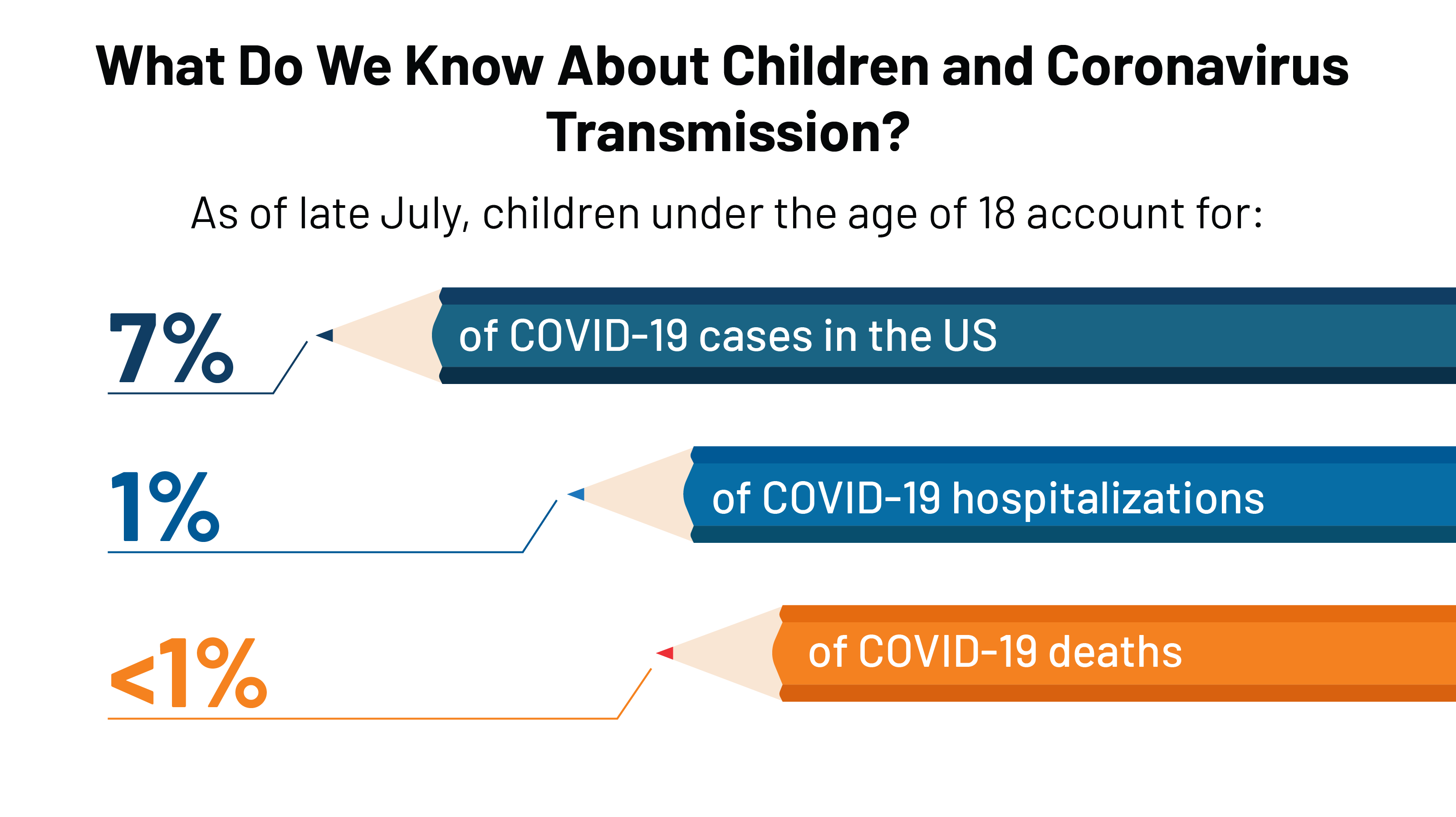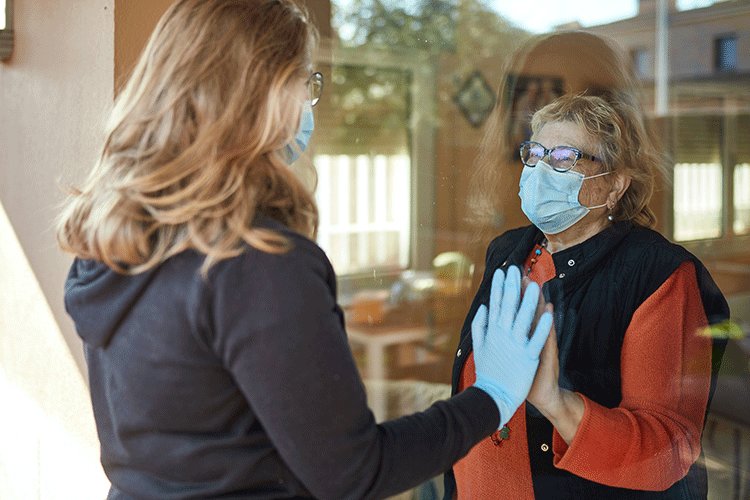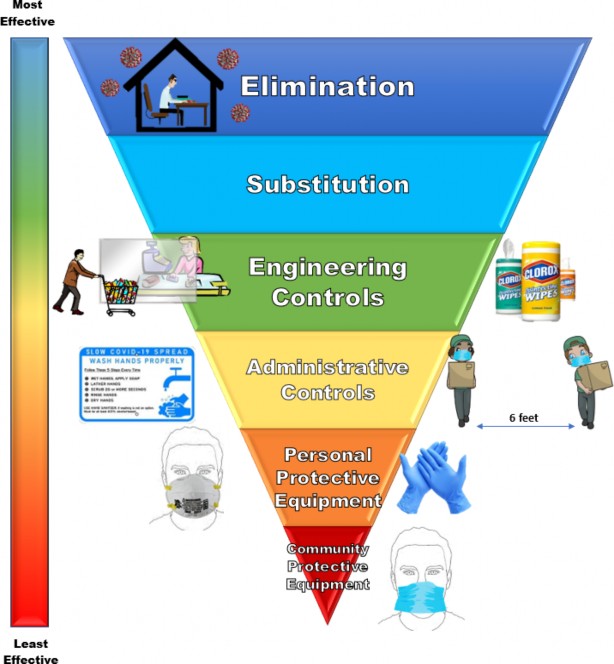How Soon After Exposure Can You Transmit Covid-19
Being within 6 feet of an infected person for a cumulative total of 15 minutes or more over a 24-hour period starting from 2 days before illness onset or for asymptomatic patients 2 days prior to test specimen collection until the time the patient is isolated Symptoms that Suggest COVID-19 Worsening Call Your Doctor or Go to ER. The time from exposure to the onset of symptoms is around two to 14 days according to Harvard Health.

What Do We Know About Children And Coronavirus Transmission Kff
The incubation period is the length of time between when you become infected with COVID-19 and when you start to have symptoms.

How soon after exposure can you transmit covid-19. If the test result is positive they should isolate for 10 days. They typically became infectious able to transmit the virus to others during the 48 hours before they became symptomatic or tested positive. Its difficult to pinpoint exactly when after exposure to COVID-19 an infected individual would become contagious.
You may have COVID-19 if you have these symptoms or combinations of symptoms. It can be a fleeting moment of just five to 10 seconds. If during your quarantine you have close contact with a person with COVID-19 you need to begin your quarantine over from day 1 and remain there until 14 days have passed with no contact.
If youve been around someone with COVID-19 you may be contagious as early as two days after that exposure if you do become infected. Thats why it is not useful as a diagnostic test for someone with new symptoms. Experts are continuing to study the virus to better understand the spread of COVID-19.
But the infected person doesnt begin producing antibodies immediately. COVID-19 is most contagious in the first week after exposure to the virus. It can take up to 14 days after an exposure for you to develop COVID-19.
This is why VDH and the Centers for Disease Control and Prevention CDC warn people to stay home quarantine for 14 days after their last contact. Most peoples symptoms appear around day five on average. Use the CDCs self-checker to help make decisions and seek appropriate medical care regarding COVID-19.
It takes a few days after exposure to produce a positive COVID-19 test result. Based on current evidence scientists believe that persons with mild to moderate COVID-19 may shed replication-competent SARS-CoV-2 for up to 10 days following symptom onset while a small fraction of persons with severe COVID-19 including immunocompromised persons may shed replication-competent virus for up to 20 days. Heres what we know about the quickening spread of COVID-19.
Someone can get a positive COVID-19 test result as soon as two days after exposure but we typically ask our patients to wait at least five days for most accurate test results Nailah. There are no firm numbers on how long it takes to get an accurate positive test result. People infected with the original form of the SARS-CoV-2 virus were mostly likely to develop symptoms andor test positive between five and six days after exposure to the virus.
In health facilities where people are receiving treatment for COVID-19 there is an increased risk of infection during medical procedures called aerosol generating procedures. It can take as long as three weeks for a blood antibody test to turn positive. If an asymptomatic fully vaccinated person has a known or suspected exposure to Covid-19 but doesnt get tested they should still watch for symptoms in the two weeks after.
Read our full coverage of the coronavirus pandemic. COVID-19 symptoms can appear anywhere from 2 to 14 days after exposure. Australian health officials are warning it no longer takes up to 15 minutes to pass on the deadly virus.
However most people will start to experience symptoms within four or five days of exposure. However based on what we know about the incubation period for this virus theres almost no chance that your sister could have passed on the virus to your family members just 24 hours after being exposed herself. Antibody tests can tell if someone has been infected with COVID-19.
People with COVID-19 have reported a wide range of symptoms ranging from mild to severe. These can produce very small droplets that can stay suspended in the air for longer periods of time and spread beyond conversational distances typically 1 meter. The incubation period for COVID-19 seems to be anywhere from three to fourteen days.
Typically a person develops symptoms one to four days after being infected with influenza but a person infected with COVID-19 typically develops symptoms five to six days after being infected but symptoms can appear as early as two days after infection or as late as 14 days after infection. Symptoms will typically develop during this week around 45 days after exposure. Yes you may still spread COVID-19 after you are fully vaccinated.
This is because you could start to develop symptoms within two to 14 days after exposure and can still be contagious before you even develop symptoms Dr. They should also wear a mask in public indoor settings for 14 days after an exposure or until they get a negative COVID-19 test result. Symptoms may appear 2-14 days after exposure to the virus.
It is possible that SARS-CoV-2 RNA may be detectable in the upper or lower respiratory tract for weeks after.

I Ve Been Exposed To Covid 19 Now What Edward Elmhurst Health Edward Elmhurst Health

Covid 19 Hierarchy Of Controls Environment Health And Safety

Operational Considerations For Adapting A Contact Tracing Program To Respond To The Covid 19 Pandemic In Non Us Settings Cdc
Posting Komentar untuk "How Soon After Exposure Can You Transmit Covid-19"